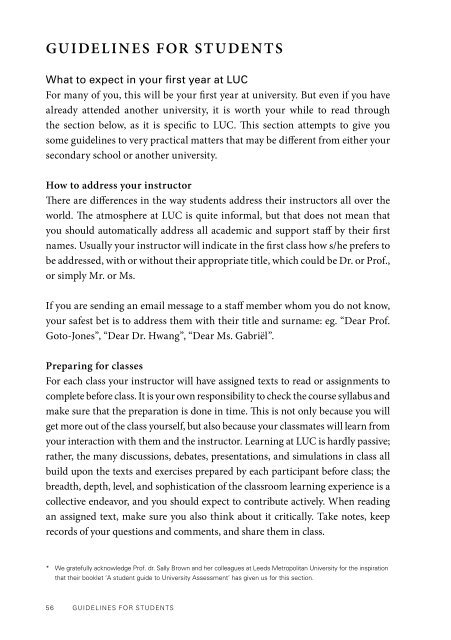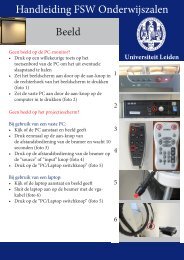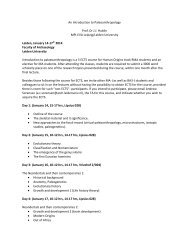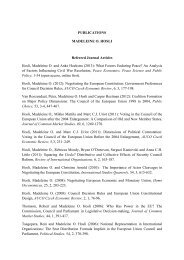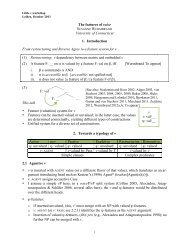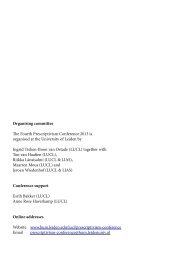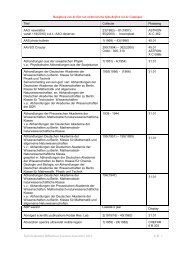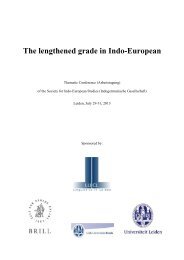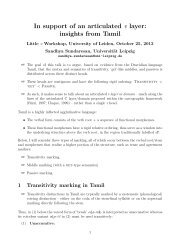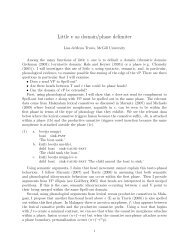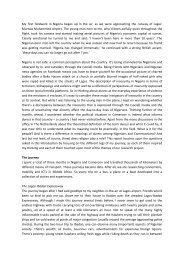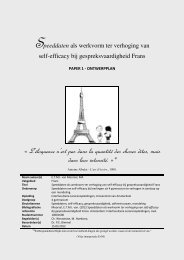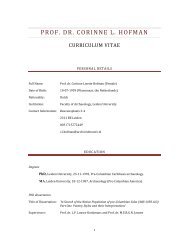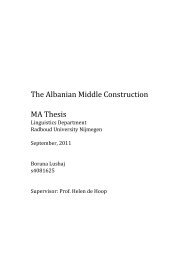LUC The hagUe ProfiLe 1
LUC The hagUe ProfiLe 1
LUC The hagUe ProfiLe 1
You also want an ePaper? Increase the reach of your titles
YUMPU automatically turns print PDFs into web optimized ePapers that Google loves.
gUideLines for stUdents<br />
What to expect in your first year at <strong>LUC</strong><br />
For many of you, this will be your first year at university. But even if you have<br />
already attended another university, it is worth your while to read through<br />
the section below, as it is specific to <strong>LUC</strong>. This section attempts to give you<br />
some guidelines to very practical matters that may be different from either your<br />
secondary school or another university.<br />
How to address your instructor<br />
<strong>The</strong>re are differences in the way students address their instructors all over the<br />
world. <strong>The</strong> atmosphere at <strong>LUC</strong> is quite informal, but that does not mean that<br />
you should automatically address all academic and support staff by their first<br />
names. Usually your instructor will indicate in the first class how s/he prefers to<br />
be addressed, with or without their appropriate title, which could be Dr. or Prof.,<br />
or simply Mr. or Ms.<br />
If you are sending an email message to a staff member whom you do not know,<br />
your safest bet is to address them with their title and surname: eg. “Dear Prof.<br />
Goto-Jones”, “Dear Dr. Hwang”, “Dear Ms. Gabriël”.<br />
Preparing for classes<br />
For each class your instructor will have assigned texts to read or assignments to<br />
complete before class. It is your own responsibility to check the course syllabus and<br />
make sure that the preparation is done in time. This is not only because you will<br />
get more out of the class yourself, but also because your classmates will learn from<br />
your interaction with them and the instructor. Learning at <strong>LUC</strong> is hardly passive;<br />
rather, the many discussions, debates, presentations, and simulations in class all<br />
build upon the texts and exercises prepared by each participant before class; the<br />
breadth, depth, level, and sophistication of the classroom learning experience is a<br />
collective endeavor, and you should expect to contribute actively. When reading<br />
an assigned text, make sure you also think about it critically. Take notes, keep<br />
records of your questions and comments, and share them in class.<br />
* We gratefully acknowledge Prof. dr. sally Brown and her colleagues at Leeds Metropolitan University for the inspiration<br />
that their booklet ‘a student guide to University assessment’ has given us for this section.<br />
56 gUiDeLiNes for sTUDeNTs<br />
Class participation<br />
<strong>The</strong> <strong>LUC</strong> learning environment encourages and trains students to take responsibility<br />
for their own learning process. This is not only achieved through pre-class<br />
preparation, but also by conduct in class. Participating in discussion is key, but<br />
so is the skill of listening to your classmates and acknowledging different points<br />
of view. Speaking a lot does not compensate for speaking before thinking, and<br />
mutual respect and understanding bolster an open and supportive classroom<br />
for all.<br />
assessment<br />
Exams, papers, presentations, discussions and practicals are all ways to engage<br />
your understanding of academic material, as well as to assess how much you have<br />
learned and which level you have achieved. <strong>LUC</strong> uses continuous assessment,<br />
the precise formulation of which will differ from course to course, in accordance<br />
with the learning outcomes. With the short and intensive blocks, you can expect<br />
your first assessment fairly soon. Always check course outlines for expected<br />
preparation for the first session, and always read course syllabi carefully to see<br />
what is expected for each assessment component. Also read the Honour Code<br />
in this handbook carefully to acquaint yourself with the standards of academic<br />
honesty and conduct enforced at <strong>LUC</strong>. Whenever planning and meeting the<br />
demands on your time prove difficult, seek guidance from your tutor.<br />
Feedback<br />
Your instructor should return work to you within ten working days, not only<br />
with a grade, but also with feedback that will help you to improve your work.<br />
This is one of the main reasons for using continuous assessment and we expect<br />
students to take this feedback into account in their future work. If there are<br />
comments you do not understand, or you would like more feedback, contact<br />
your instructor.<br />
If you find that you need more support in writing and structuring arguments,<br />
you can contact Dr. Corina Stan at the <strong>LUC</strong> Brill-Nijhoff Writing Institute. If<br />
you need support in biology, chemistry, geology, mathematics, physics, and<br />
statistics, get in touch with Dr. Patsy Haccou and Dr. Brandon Zicha at the <strong>LUC</strong><br />
Asiascape Science and Media Centre.<br />
gUiDeLiNes for sTUDeNTs 57


